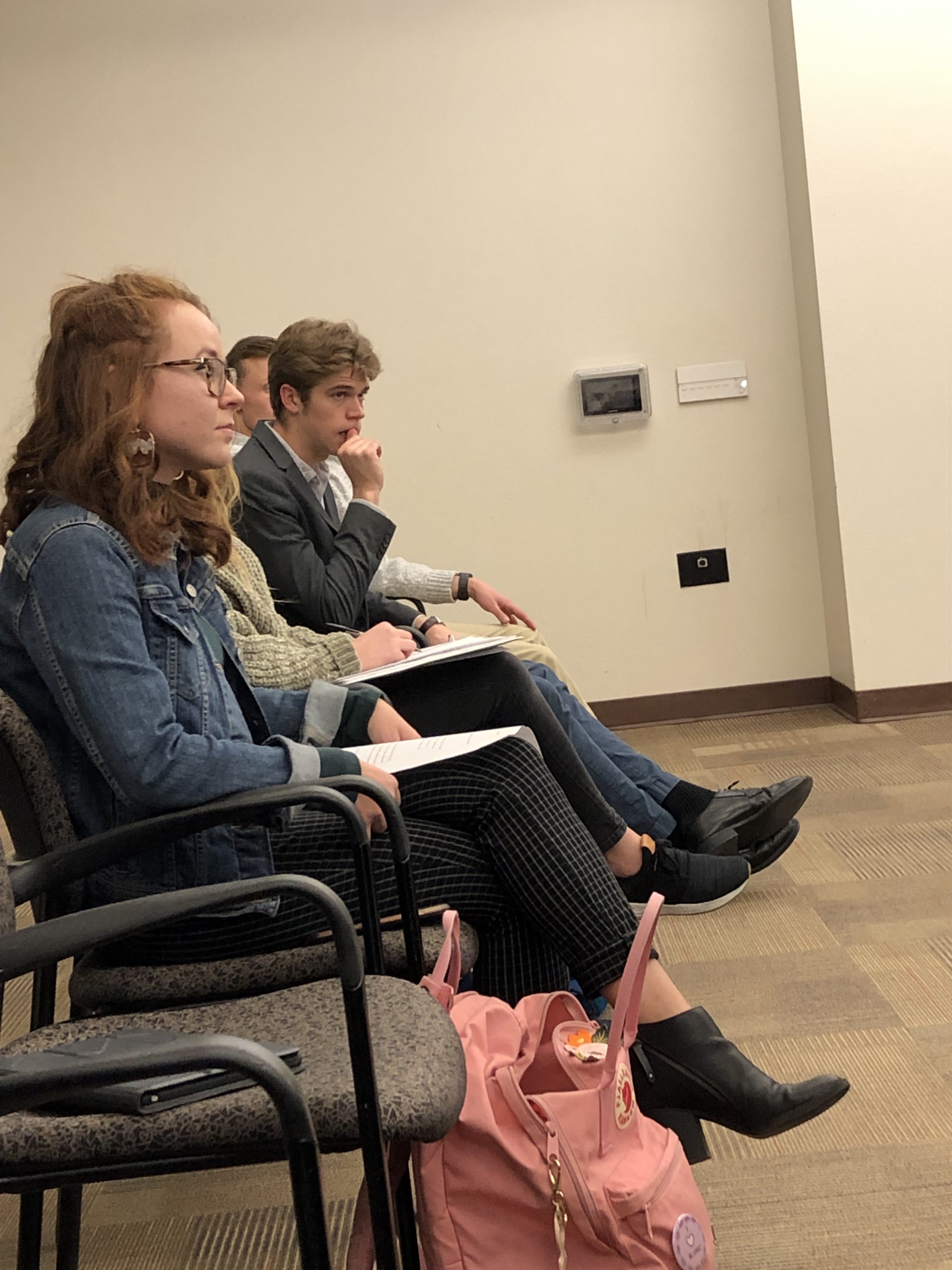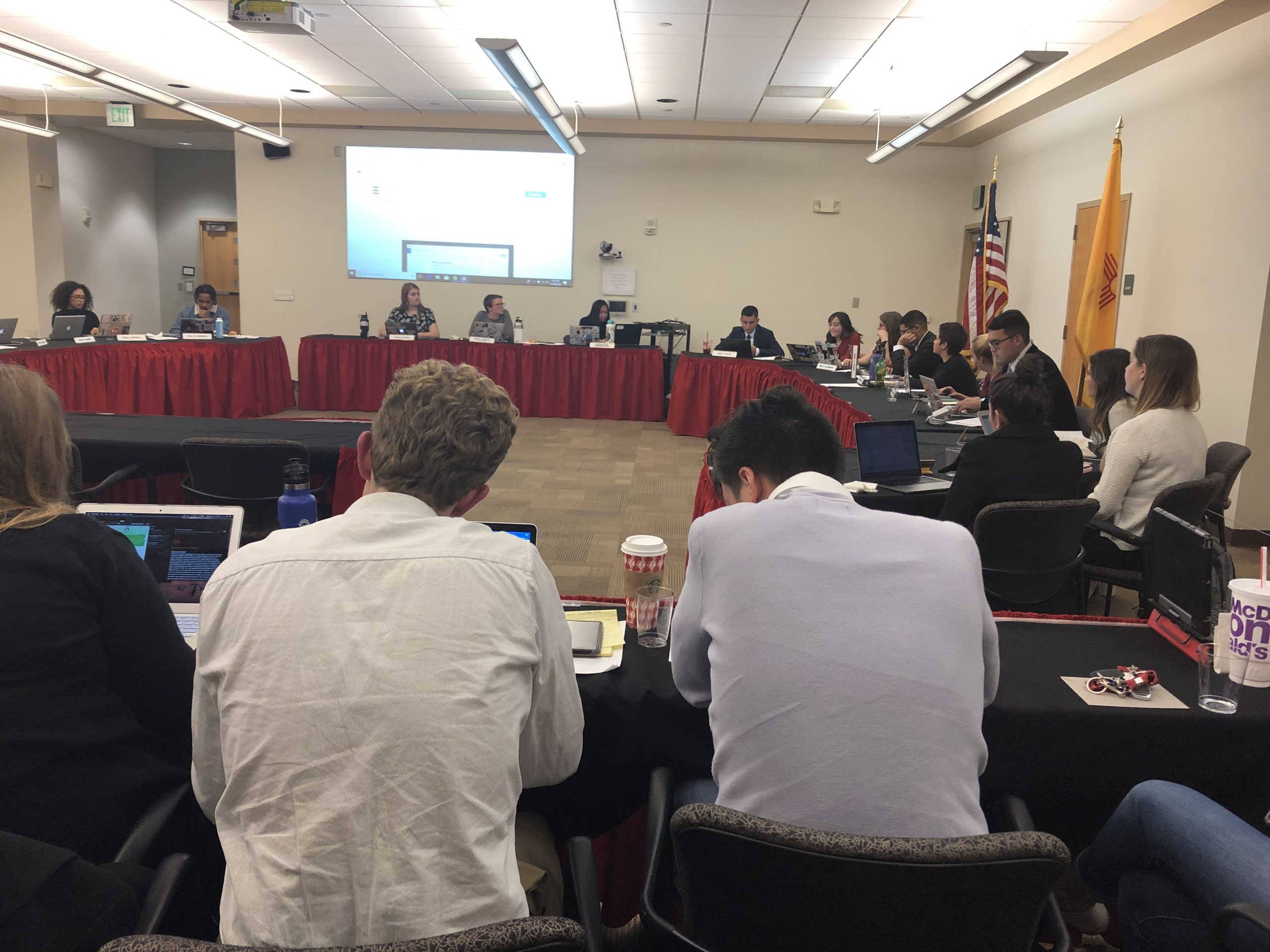The Associated Students of the University of New Mexico Senate voted to oppose the Department of Education’s suggested changes to Title IX.
According to the Department’s one-page summary of the proposed change, sexual harassment would be defined as “unwelcome conduct on the basis of sex that is so severe, pervasive and objectively offensive that it effectively denies a person equal access to the school’s education program or activity.”
Sophomore Elisa Davidson brought up Resolution 15F during ASUNM’s full senate meeting on Nov. 28. The resolution urges UNM President Garnett Stokes, the Board of Regents, and other campus leaders to make a statement in opposition to the DOE’s proposed change of the definition of sexual harassment.
Davidson is the Program Assistant for the Women and Health Education Program at the Women’s Resource Center on campus.
In addition to the new definition, the term “actual knowledge” was introduced, meaning that actual knowledge requires that reporters to have experienced something.

Senator Rose Clary voiced her opinion during the meeting, stating that these new definitions would be detrimental and don’t advocate for survivors.
Davidson reached out to Senator Selina Montoya and explained that she wanted to introduce the resolution to full senate. Senator Montoya explained that the resolution had to be introduced through special legislation.
“I read through it, I told her that I applauded her for all of the work for this; she was very passionate about it,” Senator Montoya said.
Once she had a sponsoring Senator, Davidson was allowed to take the resolution to the Senate. Senators Selina Montoya, Mohammad Assed, and Rachel Montoya were the sponsors for this resolution.
“The main purpose of this resolution is to encourage our president of UNM to come out and speak against this redefining of this definition,” Senator Montoya said. “It would essentially be sending a strong message for us as ASUNM leaders who represent the student body, saying that this is how we feel about this particular issue.”
ASUNM senators unanimously agreed to approve the resolution.
Once resolutions pass through full senate, they are given to the president and she can decide whether or not to sign it. If it is signed by the president, it becomes a joint resolution. If it is not signed by the president, it becomes a full senate resolution. In either situation, the resolution is sent to the recipients that were listed in the resolution such as the Board of Regents and elected officials.
Davidson described the work that the program does in consideration of Title IX and research to make UNM campus a safe space.
“Working where I do, I’ve kept pretty up to date with how Title IX works at universities,” Davidson said. “We are looking at how other universities structure their women’s resource centers and Title IX resources as well. So I’ve done a fair amount of research on that.”
UNM requires that students attend a mandatory sexual harassment training seminar called the Grey Area Training. It is a one-time seminar that is meant to provide education on preventing sexual misconduct. The seminar also gives a brief overview of Title IX.
“When this story broke, it was definitely something that interested me and struck me as something that the University should come out in opposition to.” Davidson said.
